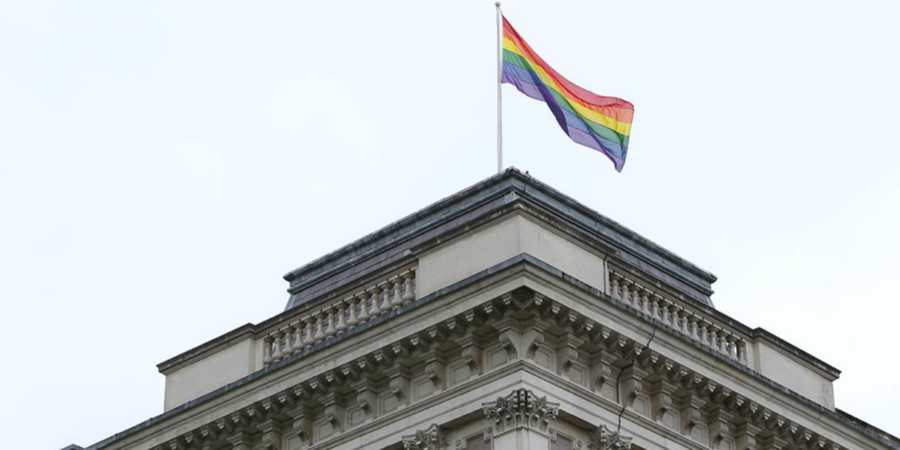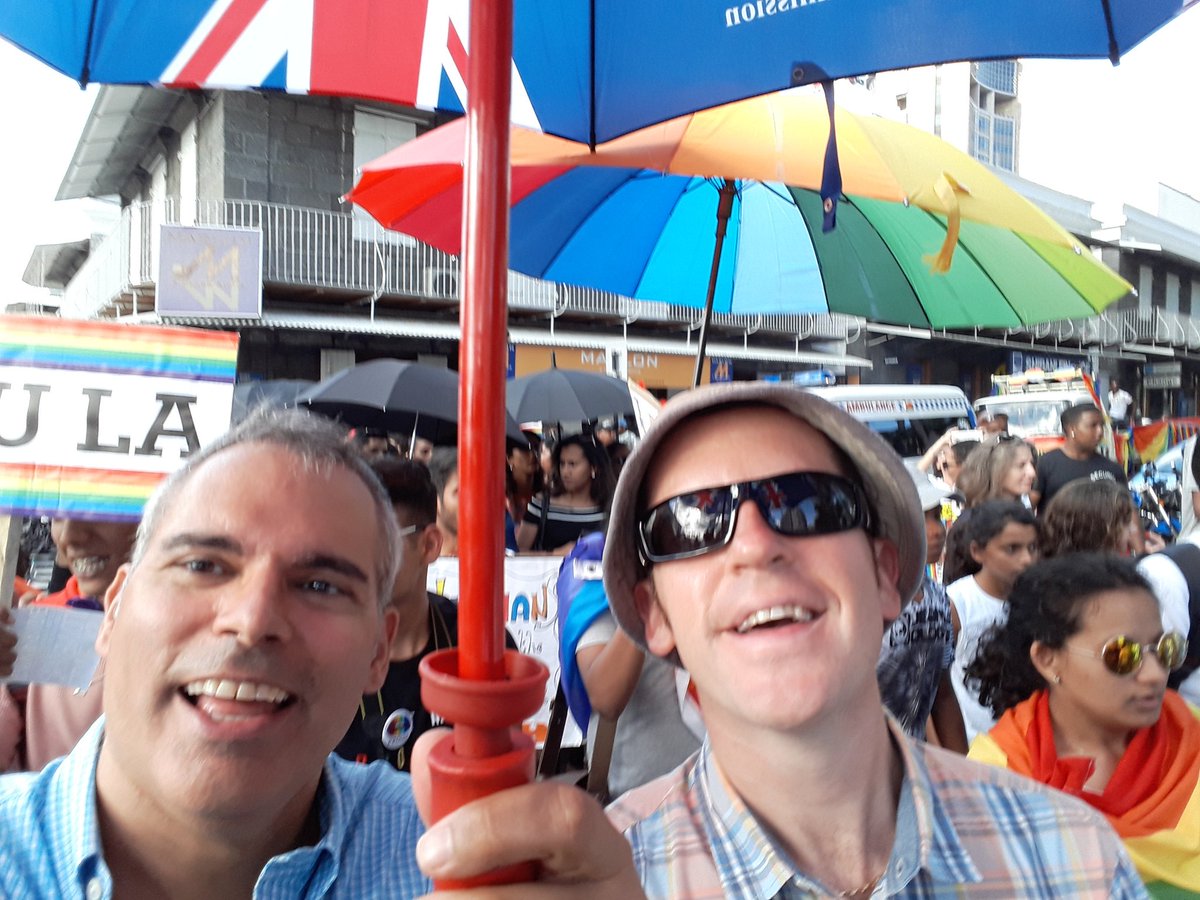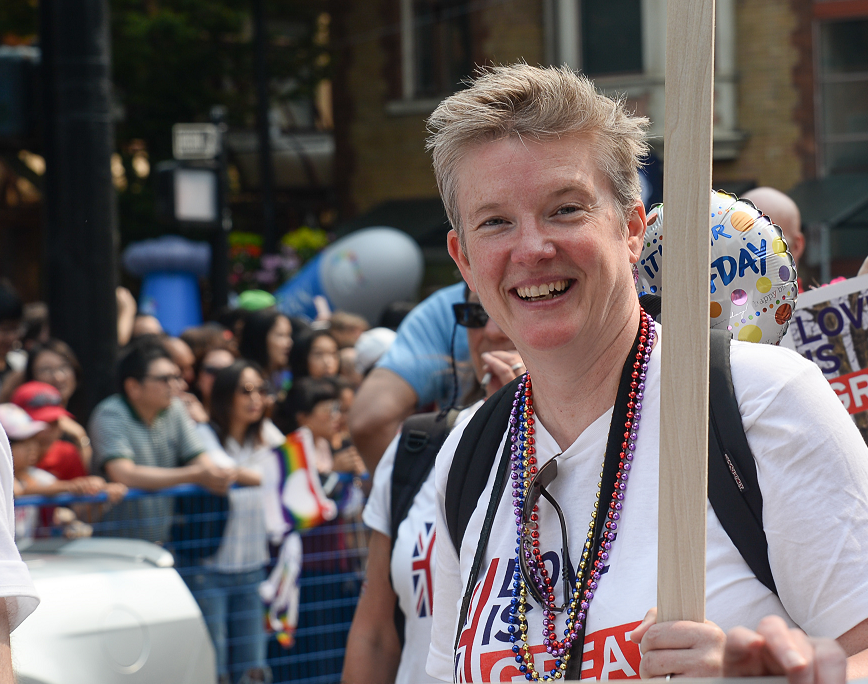3rd December 2018
FLAGG at 20: reflections from the founders of the FCO’s LGBT+ staff association

Jonathan Drew:
There are some things that need a very deep intake of breath before starting. Like writing to the PUS, six months into being a diplomat, to ask him to give his blessing to the formation of a staff LGBT+ group. On a cold November night twenty years ago, with some trepidation, I wrote that letter. Some of my courage was reinforced by knowing I was not alone. I had the backing of 5 LGBT+ colleagues – Nicole Davison, Averil Fairley, Jackie Connor, Graeme Watkins and Roy Wilson, the founder members of what was to become FLAGG. Back in 1998 there was no equal age of consent for gay men, no civil partnerships and no same sex marriage. The FCO had relatively recently lifted the bar on LGBT+ staff in 1991 and the Admiral Duncan pub bombing in central London, targeting LGBT+ people, and which killed three people, was yet to take place (in 1999).
It may seem difficult to imagine now but back then the FCO was not a liberal bastion of pro-LGBT+ sentiment as some former colleagues have publicly asserted. Although the then PUS, Sir John Kerr, gave his consent for the formation of a staff LGBT+ group, I found the Comms Centre (responsible for dispatching diptels) tried to bar the circular announcing the formation the group being sent out, and both myself and Averil Fairley, who were the named co-Chairs of FLAGG in that circular, were targeted by either our then or subsequent line management and we received email and telephone abuse from colleagues as well as some abuse delivered in person. But despite this and the institutionalised homophobia in the FCO at the time – such as no recognition of same sex partners, security tags on LGBT+ officers’ folders, a refusal by the Diplomatic Spouses Association (DSA, now the DSFA) to allow same sex partners to join – a seed had been planted.
/

/
And since then a thousand flowers have bloomed: Never did I think that I would be an openly gay Head of Mission, travelling to an African country with my husband by my side; never did I think that the FCO would, as an institution, lobby overseas governments to allow same sex partners to be posted together; never did I think we’d see the rainbow flag fly from the roof of the FCO. This transformation has come about with LGBT+ colleagues standing up for who they are and for equality, but never could have happened so quickly and so comprehensively without FCO colleagues, regardless of sexual orientation taking the time to listen, understand the issues and support change. There are still issues to solve, especially with overseas governments and with some of our LGBT+ locally employed colleagues – and in policy terms there is a question about whether the FCO might support an LGBT+ envoy. But twenty years on we can all be proud that the FCO – and its entire leadership – is willing to support all its LGBT+ officers.
/
Nicole Davison:
Like Jonathan, I remember so clearly that evening, 20 years ago, when the six of us met and decided the time was finally right to advocate for fair treatment of LGBT+ officers in the FCO by establishing a group to do so. Although I had been a serving diplomat slightly longer than Jonathan, I was equally nervous, having joined the FCO at a time when it was still a sackable offence to be LGBT+.
Although it was the six of us who started the ball rolling on what was to become FLAGG, a lot of credit should also go to those officers who joined and supported us from the very beginning. It is hard to believe now the extraordinary courage it took for some people to out themselves to help FLAGG become the strong body it now is. Had it not been for that support over the years, FLAGG would have foundered in its early days.
Change didn’t just happen and the FCO wasn’t always as liberal as it is now. But because of a PUS, Sir John Kerr, who was able to move with times, support from HR and colleagues, and a FLAGG membership that has remained engaged over the years, the FCO has emerged into a respected LGBT+ employer.
/

/
As Jonathan has said, there are still issues to address. Regular participation in the Stonewall Workplace Index, for example, would give us a sense of aspiration to make ourselves even better. The appointment of an LGBT+ Envoy would raise our game internationally. But, despite these, the FCO and FLAGG should be incredibly proud of where we are now.
Having initially feared being sacked for ‘my secret’, I’m now serving as an openly gay Head of Post and have enjoyed wonderful postings, including Ukraine and China where I like to think I did my bit to challenge perceptions.
If I had one thing to say going forward, it would be to current LGBT+ officers and allies: don’t be complacent. FLAGG still needs your support, but, more importantly, in this fascinating career where we serve in many complex environments, we need to know that we are supported, that someone has our back and that there is a community for us. And that’s where FLAGG comes in.
Hi,
I have just read Jonathan’s – our son – initiation of gay life into open social air.
Every new effort for change is never easy. But looking back through the hazy passage of time is always distressful. Progress is never without sacrifice. Yet, the effort made to bring out the hidden into the open deserves commendation! Hurray!
I am proud of Jonathan’s courage to go through much distress to bring happiness to many! What could be a better reason for going through much suffering than to bring happiness and fulfilment to many!
What courage you both showed to instigate change.